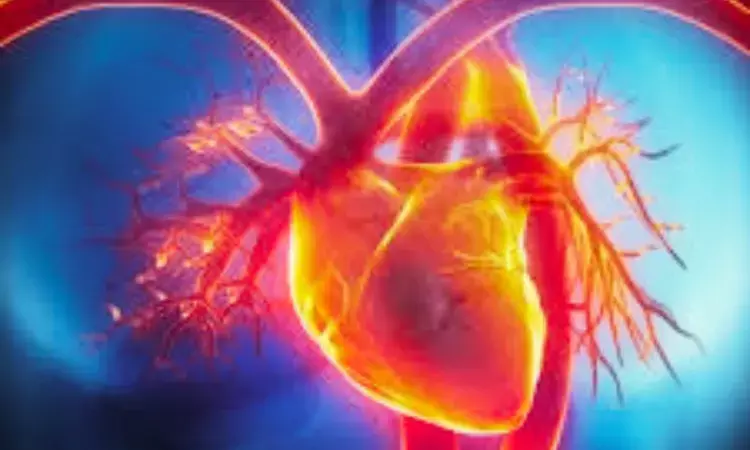- Home
- Medical news & Guidelines
- Anesthesiology
- Cardiology and CTVS
- Critical Care
- Dentistry
- Dermatology
- Diabetes and Endocrinology
- ENT
- Gastroenterology
- Medicine
- Nephrology
- Neurology
- Obstretics-Gynaecology
- Oncology
- Ophthalmology
- Orthopaedics
- Pediatrics-Neonatology
- Psychiatry
- Pulmonology
- Radiology
- Surgery
- Urology
- Laboratory Medicine
- Diet
- Nursing
- Paramedical
- Physiotherapy
- Health news
- Fact Check
- Bone Health Fact Check
- Brain Health Fact Check
- Cancer Related Fact Check
- Child Care Fact Check
- Dental and oral health fact check
- Diabetes and metabolic health fact check
- Diet and Nutrition Fact Check
- Eye and ENT Care Fact Check
- Fitness fact check
- Gut health fact check
- Heart health fact check
- Kidney health fact check
- Medical education fact check
- Men's health fact check
- Respiratory fact check
- Skin and hair care fact check
- Vaccine and Immunization fact check
- Women's health fact check
- AYUSH
- State News
- Andaman and Nicobar Islands
- Andhra Pradesh
- Arunachal Pradesh
- Assam
- Bihar
- Chandigarh
- Chattisgarh
- Dadra and Nagar Haveli
- Daman and Diu
- Delhi
- Goa
- Gujarat
- Haryana
- Himachal Pradesh
- Jammu & Kashmir
- Jharkhand
- Karnataka
- Kerala
- Ladakh
- Lakshadweep
- Madhya Pradesh
- Maharashtra
- Manipur
- Meghalaya
- Mizoram
- Nagaland
- Odisha
- Puducherry
- Punjab
- Rajasthan
- Sikkim
- Tamil Nadu
- Telangana
- Tripura
- Uttar Pradesh
- Uttrakhand
- West Bengal
- Medical Education
- Industry
AI-Enhanced CV MRI Predicts Heart Failure Risk, Study Finds Fivefold Increased Risk with High Heart Pressure

UK: Research published on August 12 in the journal European Society of Cardiology Heart Failure reveals that combining cardiovascular MRI with an AI model can effectively predict heart failure (HF) risk in the general population by estimating heart pressure.
The study, led by Ross Thomson from Queen Mary University of London and senior author Pankaj Garg, MD, from the University of East Anglia in Norwich, found that individuals with elevated heart pressure, as measured by MRI, faced a fivefold increased risk of developing heart failure within six years.
Garg highlighted in a statement from the University of East Anglia that a key finding of the study is the ability of MRI-derived pressure measurements to accurately predict the likelihood of developing heart failure.
The group explained that the rising prevalence of HF is partly attributed to an aging population. A common indicator of this condition is elevated left ventricular filling pressure, which is typically assessed through pulmonary capillary wedge pressure (PCWP) via cardiac catheterization. Cardiovascular magnetic resonance (CMR) imaging holds potential for non-invasive estimation of PCWP. However, its prognostic value at the population level is still uncertain. Additionally, the connection between CMR-modelled PCWP and well-established cardiovascular risk factors has yet to be thoroughly defined.
To fill this knowledge gap, the researchers aimed to investigate the prognostic value of CMR-modelled PCWP at the population level.
For this purpose, data from the imaging substudy of the UK Biobank—a substantial prospective population-based cohort study—were utilized. CMR-modelled PCWP was calculated using a model that includes left atrial volume, left ventricular mass, and sex.
Logistic regression was employed to investigate the relationships between conventional cardiovascular risk factors and elevated CMR-modelled PCWP (≥15 mmHg). Additionally, Cox regression was used to assess the effects of standard risk factors and CMR-modelled PCWP on heart failure and major adverse cardiovascular events (MACE).
The following were the key findings of the study:
- Data from 39,163 participants were included in the study. The median age of all participants was 64 years, and 47% were males.
- Clinical characteristics independently associated with raised CMR-modelled PCWP included hypertension [odds ratio (OR) 1.57], body mass index (BMI) [OR 1.57], male sex (OR 1.37), age (OR 1.33) and regular alcohol consumption (OR 1.10).
- After adjusting for potential confounders, CMR-modelled PCWP was independently associated with incident HF [hazard ratio (HR) 2.91] and MACE (HR 1.48).
"The findings showed that elevated CMR-modelled PCWP is an independent predictor of incident heart failure and MACE. It is recommended to include CMR-modelled PCWP in routine CMR reports to aid in HF diagnosis and management," the researchers concluded.
Reference:
Thomson, R. J., Grafton-Clarke, C., Matthews, G., Swoboda, P. P., Swift, A. J., Frangi, A., Petersen, S. E., Aung, N., & Garg, P. Risk factors for raised left ventricular filling pressure by cardiovascular magnetic resonance: Prognostic insights. ESC Heart Failure. https://doi.org/10.1002/ehf2.15011
Dr Kamal Kant Kohli-MBBS, DTCD- a chest specialist with more than 30 years of practice and a flair for writing clinical articles, Dr Kamal Kant Kohli joined Medical Dialogues as a Chief Editor of Medical News. Besides writing articles, as an editor, he proofreads and verifies all the medical content published on Medical Dialogues including those coming from journals, studies,medical conferences,guidelines etc. Email: drkohli@medicaldialogues.in. Contact no. 011-43720751


